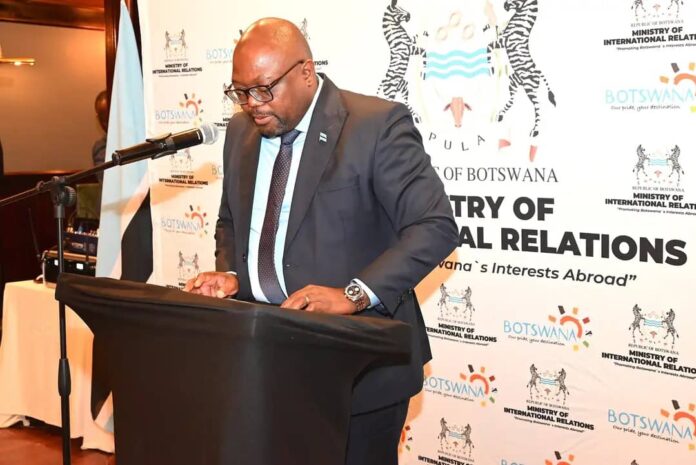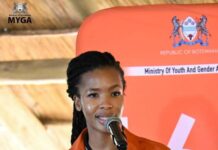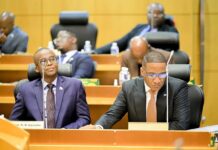The 3rd Annual Development Partners Forum has underscored the need for Botswana to chart a new path in economic growth in the face of shifting global and local dynamics.
The DPF, which was held in Gaborone on Tuesday and gathered stakeholders from across government, civil society, academia, the private sector, and the diplomatic community, is an annual event organised by the United Nations (UN) Resident Coordinators Office in Botswana. This year, the forum focused on four topics being Financing Botswana’s Development in the Post-Aid Era; Civil Society in the New Development Era; The Role of the UN and Multilaterals in a Self-Reliant Botswana; and Business Unusual: Diversification and Employment Creation.
Officiating at the forum, Minister of International Relations, Dr Phenyo Butale, recognised the paramount importance of the UN country team in Botswana’s development trajectory and for its long-lasting partnership with the country. Minister Butale further thanked the outgoing Resident Coordinator, Zia Choudhury, for his excellent leadership and dedication to the facilitation of the 2030 Agenda for Sustainable Development in Botswana. Butale stated that Botswana was grateful for the UN partnership as it has yielded the formation of the Botswana Integrated Sustainable Financing Strategy (BSFS), which aims to reduce funding gaps hindering Botswana’s pursuit of Sustainable Development Goals (SDGs).
Shifting his focus to the DPF, Butale noted that the forum was essential for an exchange of views as it pertains to the Pact of the Future. He stated thus: “This Development Partners Forum, which is held on an annual basis, and the 2025 edition takes place in the backdrop of changes in the global development space, particularly in light of the diminishing resources available for development. Hence the need to see how we can deliver with our partners on the Pact for the Future.”
He stated that in September 2024, World leaders adopted the Pact for the Future together with its annexes, the Global Digital Compact and the Declaration on Future Generations. He further buttressed that this development marks a pledge towards concrete actions regarding a safer, more peaceful, sustainable and inclusive world for tomorrow.
Botswana’s Post-Aid Era
According to the minister, who is also a Member of Parliament (MP) for Gaborone Central, in assessing the current dynamics, the post-aid- era requires concerted efforts by all stakeholders to play a meaningful role in national development. He emphasised that a multifaceted approach would ensure the country overcomes the already restricted funding experienced due to its status as an Upper Middle-Income country.
“Botswana’s youthful population, indeed, has the potential to become the leading agents of change and to play a pivotal role in shaping the present and future development of the country, as shaping the future for multilateralism,” said Butale, adding that the commitment to the Pact for the Future will accord the youth opportunities at both national and global levels.
Further to this, he outlined that it has become evident that halfway into the implementation of the Sustainable Development Goals (SDGs), the world is grappling with numerous challenges. He highlighted the challenges of climate change, financial constraints, and emerging unilateralism.
For his part, UN Resident Coordinator Choudhury stated that the UN is committed to Botswana’s socio-economic development. He noted that Botswana joined the UN after independence and has transformed into an upper-middle-income country. He noted that although the country has made traction in economic transformation, challenges relating to equal access to health care, education and other social amenities exist. He highlighted that the inequalities were more pronounced in rural areas, hence the need for collaborative efforts to tackle the disparities.
Choudhury added that although Botswana is in the Upper-Middle Income bracket, it is rich in resources with inequalities, and that ought to be addressed for it to attain a Higher-Income status.
Essentially, the forum mapped ways for the country to tackle the rising global and local dynamics as well as discussing solutions. As Botswana seeks to move away from mineral dependency, the current administration led by President Advocate Duma Boko is spearheading a new economic agenda, which will see the much-needed industrialisation and diversification. Boko has reiterated his desire to anchor development on digital transformation, Foreign Direct Investment (FDI) and harnessing other sectors like manufacturing, beef industry as well as aviation amongst others.



